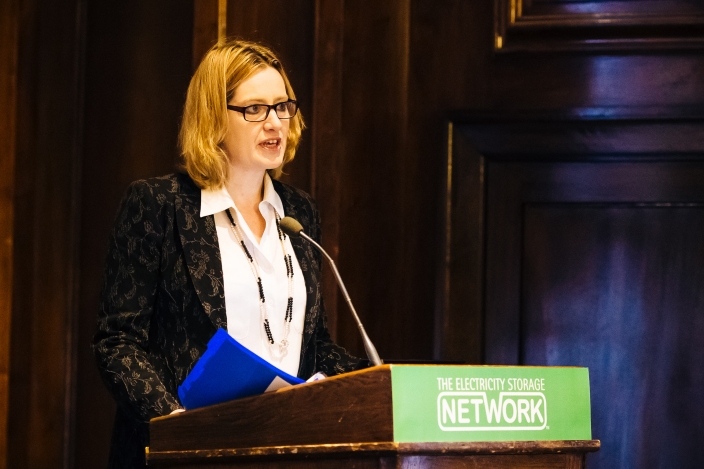Amber Rudd’s speech on the future of UK energy strategy has been criticised for its lack of detail on the place of energy efficiency in the country’s future policy.
The energy secretary used yesterday’s speech to announce plans to close all coal-fired power stations by 2025, and confirm that gas and nuclear power will receive greater investment in the future. The issue of energy efficiency policy, which the government is lacking following the removal of a number of policies since May, was barely mentioned.
Speaking at the Institution of Civil Engineers in London, Rudd said: “Of course, one of the best ways to cut bills and cut carbon is to cut energy use itself. That’s why energy efficiency is so important.
“We are committed to ensuring a million more [homes] get the same benefits by the end of this Parliament.”
However, following the end of the Green Deal in July and the scrapping of the zero carbon homes initiative, the Energy Company Obligation (ECO) is the only government scheme left to increase the number of installations of energy-saving measures. Following cuts to the ambition of the scheme announced in late 2014, the scheme is predominantly aimed at fuel poor homes – a fact that Rudd pointed to in her speech.
“I am determined that help through the Energy Company Obligation is concentrated on those in greatest need. They are the ones who live in damp and draughty homes, and they who need the most help to cut their bills.”
Despite this commitment to ECO, which is due to end in 2017, there were concerns that the scheme does not offer enough to support fuel poor homes.
.@AmberRudd_MP says ECO will focus on fuel poor. But ECO is a single measure programme, whereas average of 3 measures needed to reach Band C
— ACE (@uk_ace) November 18, 2015
The Bonfield Review is currently investigating alternatives for future energy efficiency policy, with recommendations for a new long-term sustainable policy framework for home energy efficiency due in early 2016. Despite the ongoing nature of this review, concerns have been raised following Rudd’s speech that energy efficiency is in danger of falling into obscurity.
John Alker, campaign and policy director at the UK Green Building Council, said: “Energy efficiency yet again feels like the Cinderella of government energy policy, at risk of being forgotten. Reducing demand has to go hand in hand with new generation and is the most cost effective way to keep the lights on, control energy bills and tackle climate change.
“As a true ‘no regrets’ approach to tackling the energy trilemma, energy efficiency should sit at the heart of energy policy as a national infrastructure priority.”
Neil Marshall, chief executive of the National Insulation Association, added: “Amber Rudd said that she intended to prioritise energy security and cutting energy bills. However there was little mention of energy efficiency which has a key role to play in addressing these issues.
“With £100 billion due to be spent by government on infrastructure during this Parliament, energy efficiency must now be made an infrastructure investment priority to provide the funds needed to deliver warm homes for all and boost the economy.”
Calls for energy efficiency to be recognised as a national infrastructure policy have been heard for months from a number of organisations. An open letter supported by over 50 businesses and organisations was sent to chancellor George Osborne and Amber Rudd in September making the case for energy efficiency.
The comments follow those of Lord Deben, chair of the Committee on Climate Change, who recently said the UK government was “clearly failing” in policy areas relating to energy efficiency.
With energy efficiency policy still being prepared, Rudd instead focused on the potential of smart-meters, which the government has promised will be rolled-out to every home and business by 2020. According to the latest figures, 1.3 million homes have so far received meters, with 620,000 industrial and commercial buildings also fitted.
Despite the slow rate of installations, Rudd used her speech to point to the potential of smart meters. She said: “I already have agreed with Ofgem that by early 2017 they will remove the barriers to suppliers choosing half-hourly settlement for household customers. This will allow suppliers to offer new time of use tariffs so people can get a cheaper deal based on when they use energy, not necessarily how much.”
“We are also looking at removing other regulations that are holding back smart solutions, such as demand side response and storage.”
When combined with solar and storage solutions, time of use tariffs would potentially allow businesses and households to generate electricity during the day and store it for use during more expensive peak times. This could improve energy management and even reduce strain on the grid.
By David Pratt.






